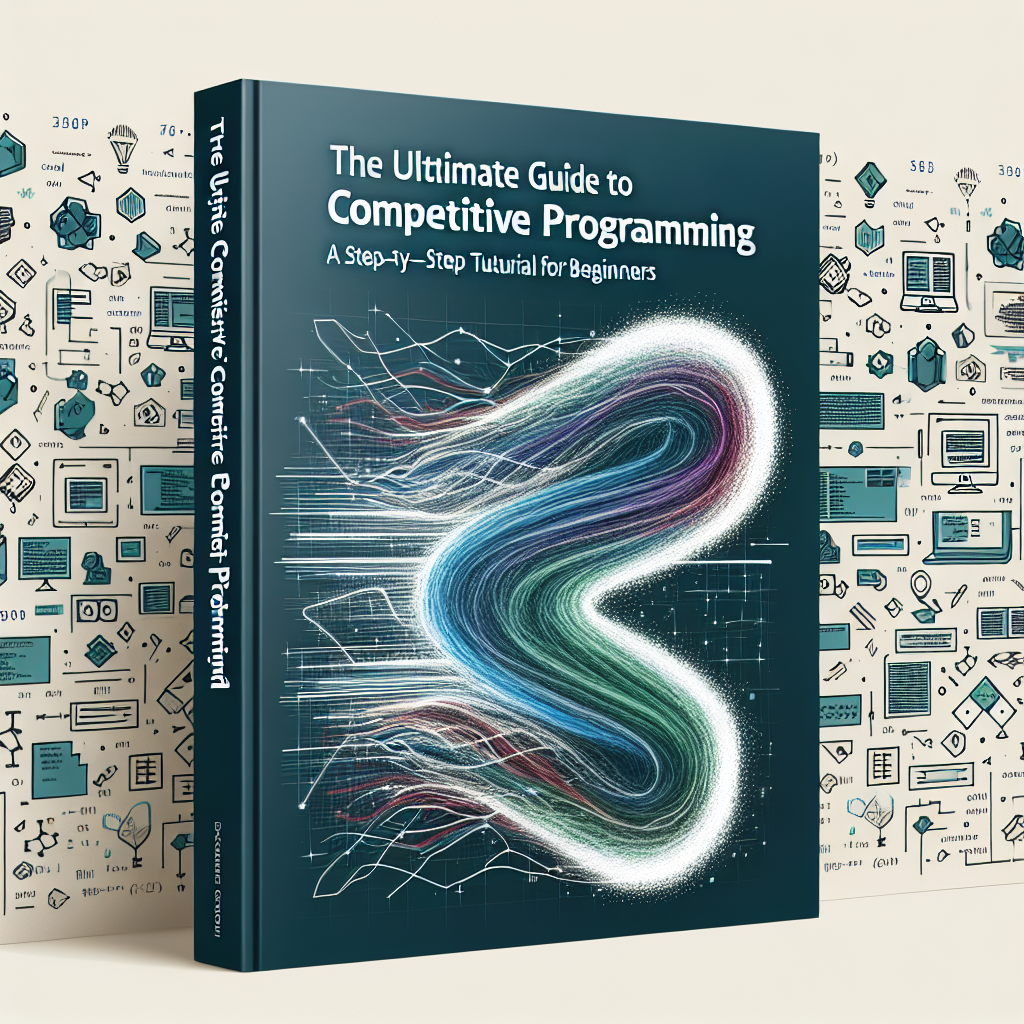What is Competitive Programming?
Competitive programming is a mind sport where participants strive to solve well-defined algorithmic and mathematical problems under specified constraints, usually within a limited time. This practice not only sharpens your logical thinking and coding skills but also prepares you for technical interviews and coding competitions like ACM ICPC, Google Code Jam, and Codeforces contests.
Table of Contents
- Why Learn Competitive Programming?
- Core Concepts and Problem Types
- Essential Tools & Popular Platforms
- Step-by-Step Competitive Programming Tutorial
- Tips, Resources, and Best Practices
Why Learn Competitive Programming?
Learning competitive programming is highly beneficial for anyone interested in computer science, software development, or data science. Here are a few reasons why:
- Improves Problem-Solving Skills: Regular practice enhances your analytical and logical reasoning abilities.
- Boosts Coding Speed: The time-bound nature of contests helps you write code faster and more efficiently.
- Prepares for Technical Interviews: Many coding interviews focus on algorithmic thinking and problem-solving, making competitive programming a perfect training ground.
- Builds a Strong Foundation: You’ll master data structures, algorithms, and optimization strategies applicable to real-world programming.
- Community & Recognition: Participate in global contests, earn rankings, and connect with a community of like-minded programmers.
Core Concepts and Problem Types
To excel in competitive programming, you should be familiar with several key concepts and problem types. Let’s explore these fundamental building blocks:
- Data Structures: Arrays, stacks, queues, linked lists, trees, heaps, and graphs are commonly used.
- Algorithms: Sorting, searching, recursion, dynamic programming, depth-first search (DFS), breadth-first search (BFS), greedy algorithms, and backtracking.
- Mathematical Concepts: Combinatorics, number theory, probability, and modular arithmetic often appear in problems.
- Problem Types: String manipulation, bit manipulation, geometry, and optimization problems.
Essential Tools & Popular Platforms
Getting started with competitive programming requires a set of tools and access to reputable online judges. Here’s what you need:
- Programming Languages: C++, Python, and Java are the most widely used due to their speed and library support.
- Online Judges: Participate and practice on platforms like Codeforces, AtCoder, LeetCode, CodeChef, and HackerRank.
- IDE & Editors: Use editors like Visual Studio Code, Sublime Text, or JetBrains IDEs for efficient coding.
- Version Control: Basic knowledge of Git can help manage your code submissions and practice files.
Step-by-Step Competitive Programming Tutorial
1. Choose Your Programming Language
Select a language you are comfortable with. C++ is favored for its STL (Standard Template Library) and speed, but Python is also great for beginners due to its readability.
2. Learn the Basics of Input/Output
Most problems require fast and efficient input/output handling. For example, in C++ use scanf/printf or cin/cout with ios_base::sync_with_stdio(false) for speed. In Python, use sys.stdin.readline() for fast input.
3. Master Fundamental Data Structures and Algorithms
- Practice implementing arrays, stacks, queues, and maps.
- Understand how to use binary search, sorting algorithms, and basic graph traversal (DFS/BFS).
4. Solve Classic Problems
Start with classic problems like Two Sum, Binary Search, Fibonacci Sequence (recursion and DP), and Longest Increasing Subsequence.
// Example: C++ solution for Two Sum problem
vector<int> twoSum(vector<int>& nums, int target) {
unordered_map<int, int> hash;
for (int i = 0; i < nums.size(); ++i) {
int complement = target - nums[i];
if (hash.count(complement)) return {hash[complement], i};
hash[nums[i]] = i;
}
return {};
}
5. Participate in Contests
Join live contests on platforms such as Codeforces or AtCoder. Start with Div. 3 or Beginner contests for easier problems, and gradually move to higher divisions as you improve.
6. Analyze and Learn from Solutions
After each contest, review editorials and top solutions to understand different approaches and optimize your problem-solving strategy.
7. Build a Practice Routine
- Solve at least one new problem daily.
- Focus on a particular topic each week (e.g., graphs, dynamic programming, or combinatorics).
- Participate in virtual contests to simulate real competition pressure.
Tips, Resources, and Best Practices
- Practice, Practice, Practice: The more you solve, the better you get. Consistency is key.
- Read Editorials: Learn from official solutions and understand the optimal way to approach problems.
- Use LSI Keywords: When searching for problems, include terms like “algorithm challenges,” “coding contest preparation,” “data structure problems,” and “online judge solutions.”
- Keep Notes: Maintain a notebook or digital document of new concepts, tricky problems, and mistakes to avoid repeating them.
- Join Communities: Engage in forums, Discord servers, or Telegram groups to discuss strategies and get help.
- Stay Updated: Follow changes in platforms, new algorithms, and trends in competitive programming.
Conclusion
Whether you aim to win international contests, ace your software engineering interviews, or just enjoy the thrill of puzzle-solving, competitive programming is a rewarding journey. Start slow, focus on learning, and remember that every top programmer was once a beginner. Happy coding!

